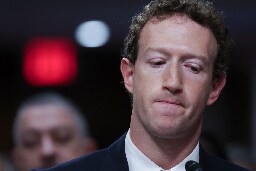Facebook snooped on users' Snapchat traffic in secret project, documents reveal


Meta tried to gain a competitive advantage over its competitors, including Snapchat and later Amazon and YouTube, by analyzing the network traffic of how its users were interacting with Meta’s competitors. Given these apps’ use of encryption, Facebook needed to develop special technology to get around it.
Facebook’s engineers solution was to use Onavo, a VPN-like service that Facebook acquired in 2013. In 2019, Facebook shut down Onavo after a TechCrunch investigation revealed that Facebook had been secretly paying teenagers to use Onavo so the company could access all of their web activity.
After Zuckerberg’s email, the Onavo team took on the project and a month later proposed a solution: so-called kits that can be installed on iOS and Android that intercept traffic for specific subdomains, “allowing us to read what would otherwise be encrypted traffic so we can measure in-app usage,” read an email from July 2016. “This is a ‘man-in-the-middle’ approach.”
A man-in-the-middle attack — nowadays also called adversary-in-the-middle — is an attack where hackers intercept internet traffic flowing from one device to another over a network. When the network traffic is unencrypted, this type of attack allows the hackers to read the data inside, such as usernames, passwords, and other in-app activity.
The DMCA does not have anything to do with uncopyrighted data.
Private communications are covered by copyright.
Network data requests aren't exactly private communications.
Wiretapping laws would seem to disagree. XD
Wiretapping laws aren't enforced because of copyright. Such communication isn't the type of private communications that is copyrighted.
Sure, but Facebook would prefer a copyright case over anything that might suggest a bill of privacy rights would be a good idea.
Facebook's preference doesn't change the nature of existing law.
Precisely.
So do we agree that this has nothing to do with the DMCA?